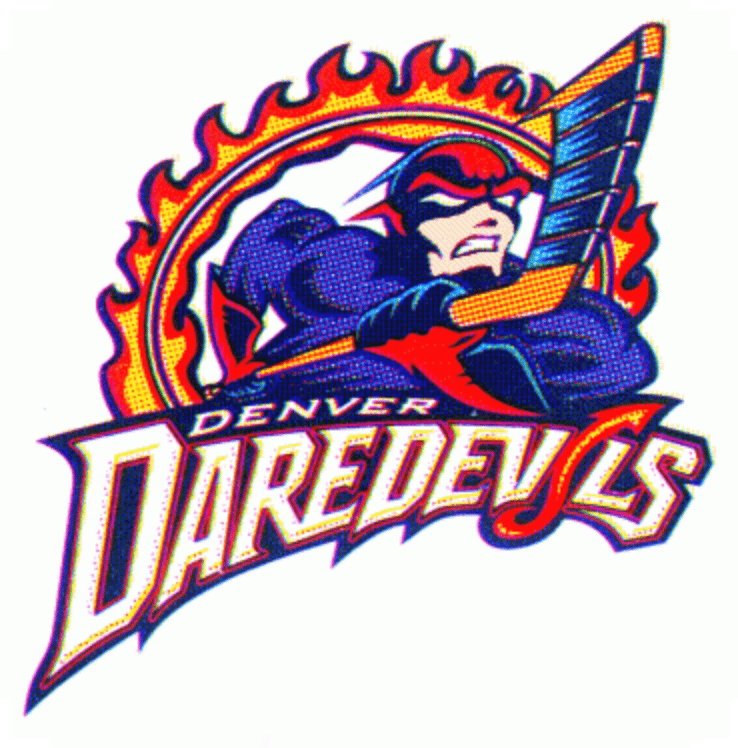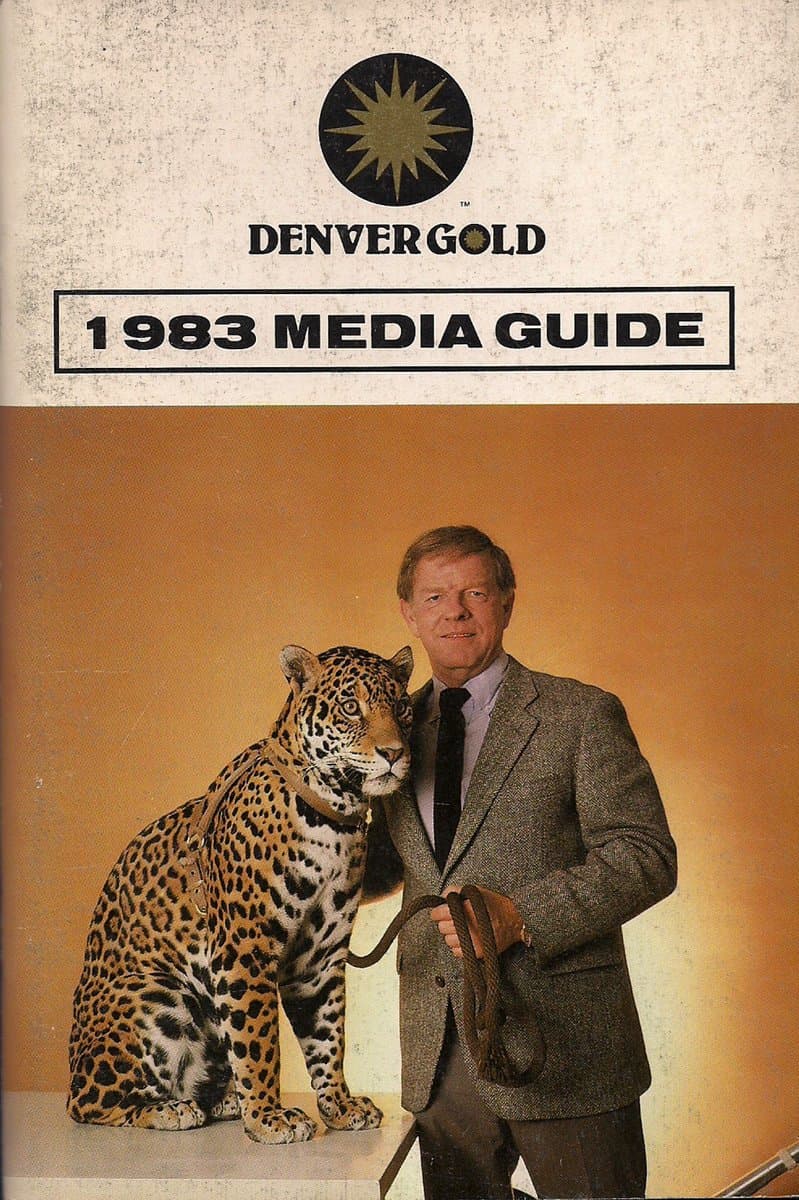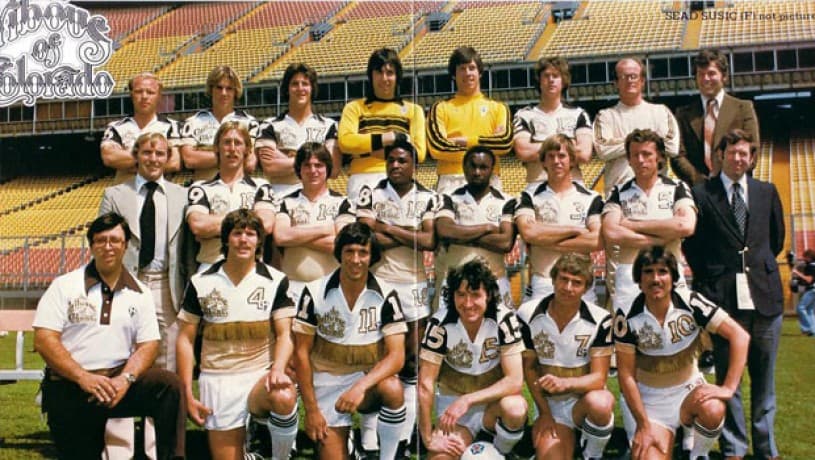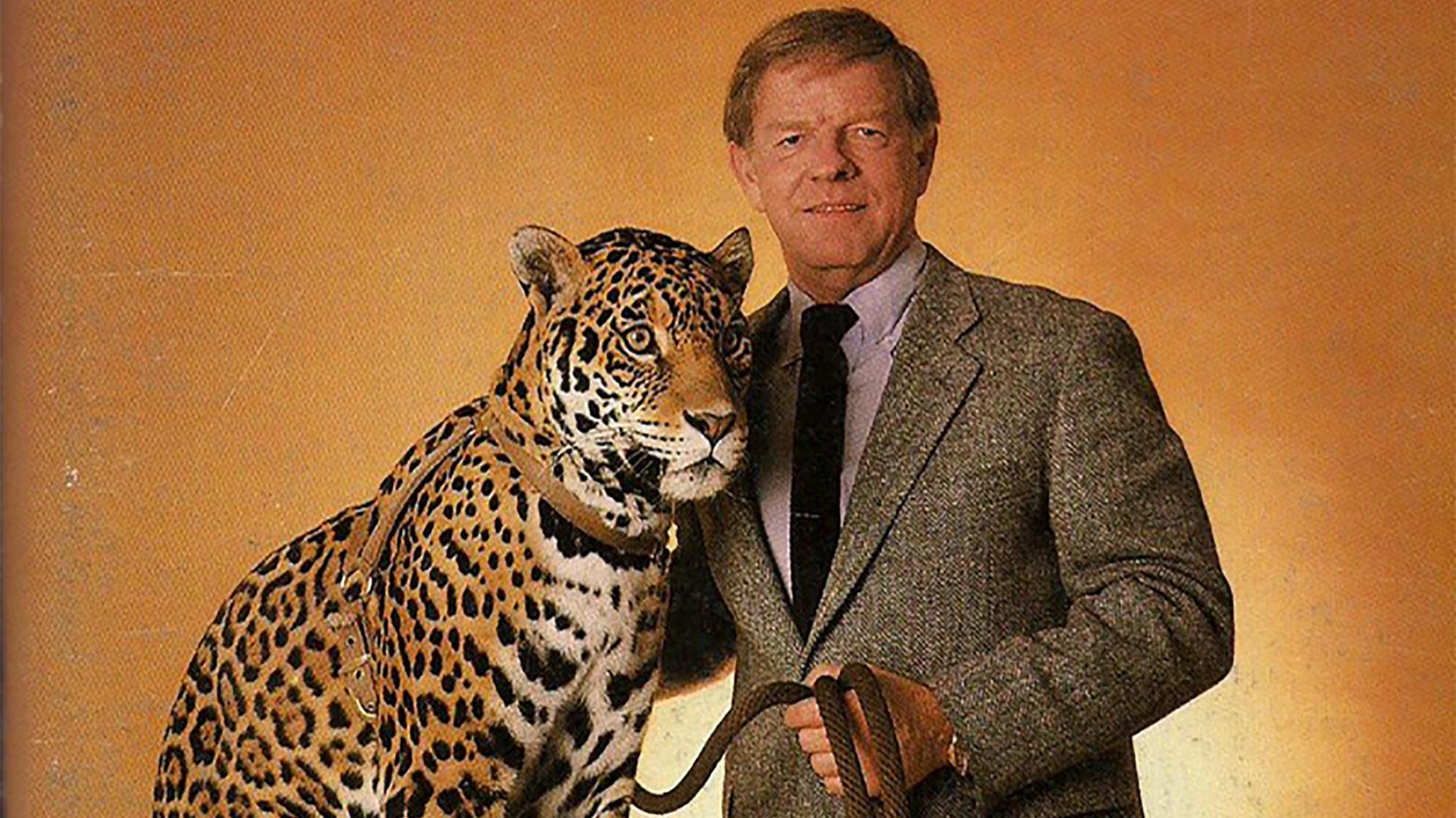Can you hear it?
The smooth roll of inline skate wheels glide over the acrylic court at McNichols Sports Arena.
Keven St. Jacques, the all-time scoring leader for the Denver Daredevils, curls and drags the puck before sniping it seven-hole passed Hugo Hamelin, the stonewall goalie for the rival Phoenix Cobras.
Beers spill. High-fives smack. Fans in the stands attempt the wave -- as was the style at the time, to quote Grandpa Simpson.
I have no idea if this sequence actually happened, but it's how I imagine a game in 1995, when the Daredevils were the shiny new sports team in town. The professional roller hockey squad, part of the Roller Hockey International League, was riding an inline fad all the way to the hearts of at least 14 fans.
And then -- poof. They were gone. A one-year wonder in a sports-crazed town with a long history of winning -- but an even longer history of losing teams to the annals of sports history. It's a story with more than a dozen versions here in the Mile High.
"So much of the economy of these junk sports leagues is based on the greater fool theory that there's always another sucker," said Andy Crossley, the blogger behind Fun While It Lasted, a searchable encyclopedia of "lively tales about dead teams."
The stories of these scrappy, failed leagues and teams are fun, bizarre and kind of hilarious. Yet the entrepreneurial, risk-taking spirit was crucial to the big-time, big-money sports leagues people know and love today.
"If you look at everything you love or hate about going to a Nuggets or Broncos or Rockies game, those things are probably happening because of a minor, defunct league," Crossley said. "Those leagues are why you now have the three-point shot or the two-point conversion. Or the nonstop assault on your senses of rock and hip hop, or crazy local food and beer options."
There are too many of these teams in Denver's past for one article. Luckily for you, that means you get a series over the next however many months when we have time to write about the all-important world of defunct sports teams.
Here's the first set:
"The war on the floor": Denver Daredevils, 1995-96
Here are a few more things to know about this short-lived team, an expansion franchise in the defunct Roller Hockey International league.
"It was a definite attempt to capitalize on the inline skating boom," Crossley said. "It was a huge failure just about everywhere, the kind of thing people might check out once."

Their jerseys were an incredibly mid-90s blend of busy color saturation with ample amounts of flames and a literal superhero in Marvel's Daredevil character.
Head coach Kevin Cheveldayoff is now -- double-checking this for accuracy -- yes, the general manager and executive vice president of the National Hockey League's Winnipeg Jets. Humble beginnings.
Some Daredevil marketing material refers to the team's inaugural season as "the war on the floor." After going 8-20, the war ended abruptly, which is great for peace.
When Donald Trump killed the Denver Gold, 1983-85
The most incredible thing about the Gold's two-season run is the 1983 media guide, which features head coach Red Miller on the cover chilling with a leopard. Here's Maybe Fun While It Lasted's Crossley has some analysis:
"I have no idea why there's a leopard on there or why they thought that was useful," he said.
Well then.

The animal looks drugged and terrified. Miller, who previously coached the Denver Broncos to a Super Bowl appearance, looks ready for his first (doomed) season leading the Gold. He was fired before season's end after a 4-7 start.
But the team, part of the short-lived United States Football League, was actually popular. The Gold sold 30,000 season tickets in its first year at Mile High Stadium (it was a spring football league).
Gold fans can thank a guy named Donald Trump for the team's eventual collapse. Trump, who owned the New Jersey Generals, lobbied the league to make the USFL an autumn thing. Pitting the nascent franchises against their thriving National Football League counterparts, including the Denver Broncos, didn't work.
Or, as Crossley puts it, the decision was "economic suicide."
The Gold moved to Portland and then Jacksonville before the 1985-86 season -- but the league folded before another kickoff happened.
The Gold's ticket sales suggest that a spring football league could have worked, at least back then. Crossley points out that the National Football League went dark between the Super Bowl and training camp. It lacked the year-round appeal it has now, thanks to 365-day coverage from ESPN and others, as well as the fantasy football industry.
"There was really a void for people who love football or who wanted something that felt big in their town back then," Crossley said.
RIP, Gold.
The Caribous of Colorado and the inevitability of American soccer, 1978
These uniforms are everything a marketing team should do when trying to brand a soccer team in Colorado in the '70s.
First, take an animal that hasn't existed here since the ice age and make it your mascot. Then, fringe.
"These players need brown fringe to sway in the wind while they dash about if we're gonna be taken seriously," said someone, once, with decision-making power, hopefully.

The Caribous of Colorado (not the Colorado Caribous) of the North American Soccer League were actually named for Colorado's Caribou Ranch recording studio, which belonged to soccer team co-owner and Grammy-winning producer James Guercio. He was betting on what Crossley called the "inevitability" of soccer -- the idea that a successful American league was just a matter of time.
"To contrast the Caribous with something like a roller hockey team ... that sport is this sort of high concept gimmick with no roadmap to success," Crossley said. "In soccer, it's the most popular sport in the world. Everybody knows how tough a road that is in the U.S., but look at South America or Europe, you know it's possible."
Major League Soccer has turned the corner toward being a viable business thanks to strong markets like Seattle, Atlanta and Portland. And the Caribous were one of the early teams to test the concept. Today's Colorado Rapids even paid homage to (made fun of?) the Caribous by wearing their kits for an April Fools joke.
A creative owner and disturbing kits weren't enough to sustain their place in the North American Soccer League. The Caribous and their league-worst 8-22 record managed to fill just 10 percent of Mile High Stadium per game, and then they were moved to Atlanta.
Trot on, 'Bous.
If you have memories you want to share about defunct Denver sports teams, Denverite wants to hear from you. Email [email protected].














